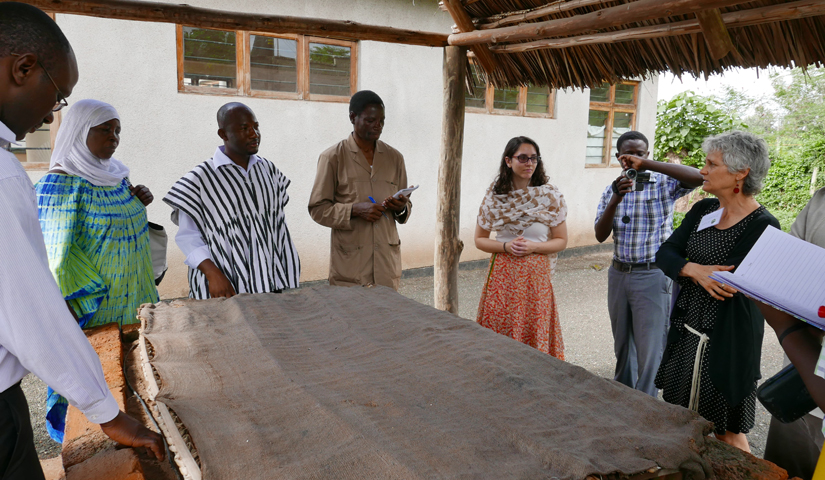
By Britta Hansen, Horticulture Innovation Lab
Editor’s note: As our management team members visit Horticulture Innovation Lab partners and research sites in developing countries, we are sharing with you glimpses into their visits, with travel updates and photos.
Graduate student researcher Elyssa Lewis and I were invited to observe a refresher training course in Arusha, Tanzania, hosted by the World Food Logistics Organization (WFLO) and the TOPS Program.
When we visited, the WFLO was also in the process of evaluating a pilot project that trained experts in postharvest handling of fresh produce and established a Postharvest Training and Services Center in Arusha. This project was originally funded by the Horticulture Innovation Lab and led by Diane Barrett, of UC Davis. As a program officer for the Horticulture Innovation Lab, I work with these researchers and others to evaluate and disseminate their research and new technologies.
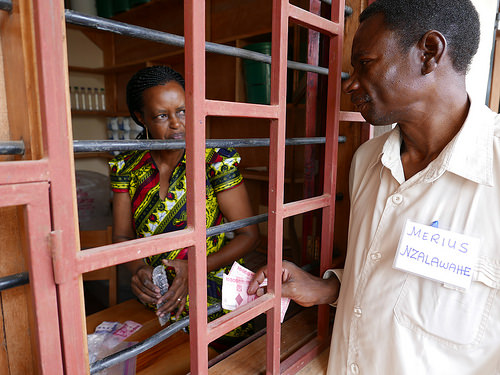
The Postharvest Training and Services Center is so much more than a training center. It aims to combine extension-type services with a sustainable business model. The small store pictured here is open every day to sell plastic packing crates, tree clippers, jars, buckets and other materials that local growers and processors can use to better handle fruits and vegetables after harvest.
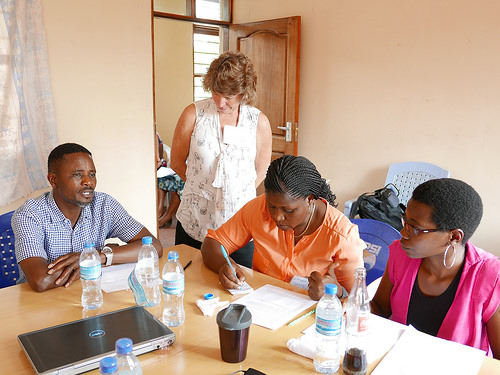
The refresher course brought together past trainees who are working in postharvest horticulture throughout Africa. The trainees updated the group on their current activities, ranging from work in the private sector to government and development projects. Two past trainees are currently working with the government of Tanzania to design vegetable packinghouses where growers can bring in their produce to wash, sort, and store. UC Davis and WFLO trainers focused on new developments in the postharvest sector and reviewed some key aspects of past courses.
I worked with a small group who was proposing to build an evaporative cooler, called the Zero-Energy Cooling Chamber in Ghana. We spent one afternoon doing rough calculations to determine the economic benefits of implementing this new cooling technology.
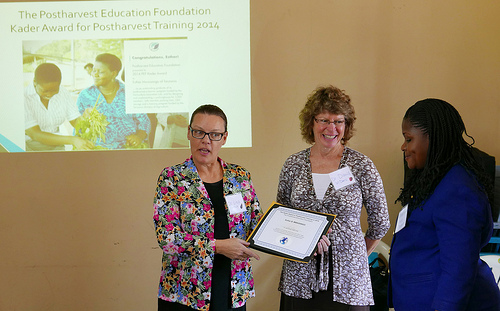
During the meetings, the Postharvest Education Foundation also presented its Kader Award for Postharvest Training in 2014 to Esther Mwaisango. Esther has been involved in training growers in Tanzania on postharvest handling and packing, while implementing a collection center with multiple international and national partners.
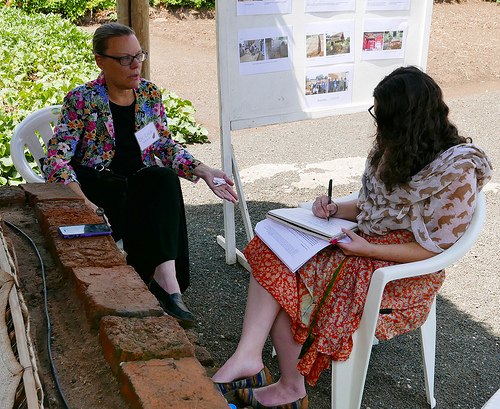
While we were there Elyssa Lewis, UC Davis graduate student researcher, also interviewed Diane Barrett and Lisa Kitinoja about the challenges and success of their pilot project with the Horticulture Innovation Lab, looking back at how it has informed subsequent projects. Lewis also assisted in the TOPS-funded evaluation of the project by interviewing the managers of the Postharvest Training and Services Center, about their ongoing activities.
(Horticulture Innovation Lab photos by Britta Hansen)
